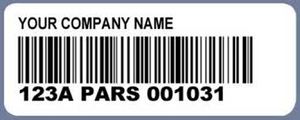Carrier Code (CBSA)
|
🔖 This article is part of the Customs Glossary Guide |
Highway Carrier Code (CBSA)
The unique 4-character identifier required for all commercial trucking companies crossing into Canada.
Overview

A Highway Carrier Code is a unique four-character code issued by the Canada Border Services Agency (CBSA) to identify a carrier. It is mandatory for any company transporting commercial goods into Canada, regardless of how often they cross.
This code acts as the foundation for all cross-border reporting. It is used to generate the Cargo Control Number (CCN) for PARS labels and the Conveyance Reference Number (CRN) for ACI eManifests.
One Code Rule: Only one carrier code is issued to each legal entity per mode of transport. You cannot have multiple codes for the same company unless you have separate legal divisions.
Bonded vs. Non-Bonded Codes
When applying, carriers must choose between two types of codes, which determine their operational privileges.
| Type | Description | Privileges |
|---|---|---|
| Non-Bonded | The standard code for most carriers. Goods must be released at the First Port of Arrival (FPOA). |
|
| Bonded | Requires posting financial security (minimum $5,000) with the CBSA. Codes typically start with 2, 3, or 4. |
|
How to Apply (The CARM Process)
As of May 2024, the CBSA has modernized the application process. Paper forms (BSF329-7) are being phased out in favor of the CARM Client Portal (CCP).
Step 1: Register for a Business Number
You must have a valid 9-digit Business Number (BN) from the Canada Revenue Agency (CRA). Foreign (U.S.) companies can obtain this as part of the registration process.
Step 2: Register in the CARM Client Portal
Log in to the CARM Client Portal using a GCKey or Sign-In Partner.
Select "Register my Business" > "Carrier" to begin the application.
Step 3: Post Security (If Bonded)
If applying for a Bonded code, you must work with a surety company to post a D120 Customs Bond. This bond is now filed electronically via the API or portal.
Note: Once approved, your carrier code is active immediately for use in ACI eManifest and PARS label printing.
Common Usage Scenarios
- Commercial Cross-Border Shipments: Every time a truck crosses with goods, the carrier code is the first 4 digits of the PARS number on the invoice.
- Export Declarations: When moving goods out of Canada, the code identifies the carrier on the export declaration (CERS).
- Trusted Trader Programs: Carriers applying for CSA (Customs Self Assessment) or FAST must link their bonded carrier code to their application.
- Single Trip Bond: A non-bonded carrier who needs to move a specific load in-bond can use their non-bonded code combined with a Single Trip Bond authorization.
Usage in BorderConnect
In BorderConnect, your Highway Carrier Code is the central setting for your account.
Official Resources
- CARM Client Portal: Official Login & Registration
- CBSA Guide: Commercial Carrier Identification and Eligibility
- Memorandum D1-7-1: Posting Security for Transacting Bonded Operations
